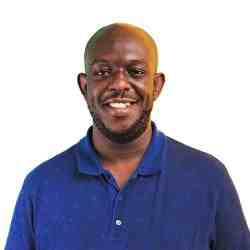Introduction
Endre Biro is increasing access to the Hungarian legal system by providing resources and services that enable individual citizens and civil society organizations to use the law as a tool for building democratic institutions.
The New Idea
To encourage greater involvement in civic life and thereby to strengthen the democratic process in Hungary, Endre is developing tools to help citizens more easily access and more effectively use the law. For example, he has created an online resource that indexes information related to the legal process, as well as to statutes and individual legal cases. Starting with the education and nonprofit sectors, Endre has designed services that teach people to efficiently use the resources he creates. Further, he builds the infrastructure necessary to match client needs with relevant resources and services. Using a team of volunteer lawyers, he helps schools and nonprofits establish legal relationships with the government, then secure and use information about codes and other legal matters that affect their work. As a result, clients feel enabled rather than oppressed by the often baffling, unwieldy, and archaic systems established and maintained by the state. Endre looks forward to adapting the tools he has created to other sectors of society where the legal system is currently difficult to access and use; these sectors include state administration, health care, social services, environmental protection, and rural development. His overarching goal is to encourage and enable strong civic participation in post-1989 Hungary.
The Problem
As a legacy of socialism, legal information services are not well developed in Hungary, and established services are notoriously difficult to access and use. Providing information was not in the interest of the former state, and even within the government bureaucracy, free flow of information was uncommon. Ten years after the country's transformation, people still have difficulty finding out about their legal rights and responsibilities. And frequently, the information they find is incomplete, faulty, or simply out-of-date. For example, when laws are modified, the state prints the whole text of the modified law in an official newsletter. No attempt is made to highlight the changes or explain what they mean. Individuals and organizations wanting to know about changes have to compare old and new versions of the law, searching line by line for revisions. The disconnect between legislative revision and the daily operations of institutions can mean that schools, for example, are allocated money according to old laws, even when the government has decreed greater spending.Compounding the problem, a large percentage of current workers in the education and civil sectors are relatively inexperienced, many having begun their careers in the post-1989 era. Despite this, citizens regard these two sectors as best representing the new society in Hungary. The sectors' significance is partly related to their sizes: the country currently has fifty thousand civil service organizations and eight thousand educational institutions. Endre reasons that if these sectors lack the tools to use the legal system effectively and efficiently, the damage to both the substance and image of new society reformation is serious.
The Strategy
While working in the Chief Prosecutor's Office between 1979 and 1987, Endre realized that there was a complete lack of coordinated legal information services. Winning a competition to modernize the office, he was disappointed when no changes were made. In 1988, Endre broke out of the state framework, and, with help from a colleague, opened a legal office with the purpose of designing a legal information system based on computers. The resulting system, the first of its kind in Hungary, was adopted by the state. Later a business bought the license and started to mass-produce it. In order to effect wider change, Endre addressed the crucial issue of school reform. He reasoned that school leaders are key to fostering a future generation of students who are self-sufficient, aware of their rights, and actively engaged in civic life. He discovered that meaningful school reform would come about only if school leaders possessed a much broader understanding of the rights of educational organizations to make changes. Part of the problem was that the complexity of laws governing school matters impeded understanding, even among experienced leaders. To help remedy this problem, Endre created in 1997 the Legal Knowledge Foundation. As a beginning, he designed a basic level legal training program that produced much-needed materials in a form that was accessible to lay persons and educational professionals alike. The Foundation's first publications included Children's Rights, Students' Legal Charter for Hungary, Law in Pedagogy, Rights in the School, Rules of House in Schools, Hungarian Legal Dictionary. Endre also published a newsletter for teachers, the Legal Newsletter of Teachers. To make changes in the law more readily available, he introduced a "recycling" project -- a very practical legal dossier, the pages of which are bound together with rings. When laws are modified, pages with changes marked are mailed to interested parties who then exchange out-of-date pages with pages containing current law. The Foundation has now published a dossier for several other fields, including social work and child protection, the nonprofit sector, health care, and cultural affairs.
To provide even more comprehensive legal services, Endre created his first Legal House, an amalgam of previously developed legal software, a computer database, an internet and electronic shop, and various other information services. Endre established the School Legal House and the Non-Profit Legal House in 2000. The School Legal House targets teachers, educational leaders, students, student governments, parents, parents' organizations and the financial providers of schools, and local governments. The Non-Profit Legal House addresses leaders, founders, activists, and members of civil society organizations. Extensive services are accessible through telephone, fax, email, and the internet. Legal professionals are available to help clients find needed information, but through the internet service, which includes a search engine, all information is fully accessible by clients. Clients are also able to visit the Self-Service Legal Information Shop, through which they can access examples of cases, among other information. Endre is collecting the most frequently asked questions and publishing them, with answers, in book form. The profit derived from the resources Endre sells, from registration fees, and from fees for more complicated legal services make the system self-sustainable.In a few years, when the Legal Houses become better known, Endre's simple, direct information service will likely be adapted by state institutions and will be run through Endre's organization. To reach this breadth of oversight, Endre will create other legal houses which will serve other professional fields. The state favors Endre's model because it is inexpensive, self-sustainable, and easy to replicate.
The Person
In high school, Endre emerged as a youth movement leader, having been elected by his class of one thousand students. He developed an educational program that included in its design a community service component. For this program, Endre, at the age of eighteen, was awarded the first prize in the National Creative Youth Award Competition. Later he volunteered as a teacher and mentor to emerging leaders in the program he created. As an instructor in the Budapest Youth Council, he designed a new student government system that influenced the school structure and its professional development program. Endre has won several awards over the years for his work in creating structural changes for legal information services for the Chief Prosecutor's Office. In 1986, Endre won a scholarship from the Hungarian Academy of Sciences and Soros to write a document, the first of its kind, to complement governmental procedure documents. He is the co-president of the Children's Interest Forum and a counselor in the Hungarian Parliament.




